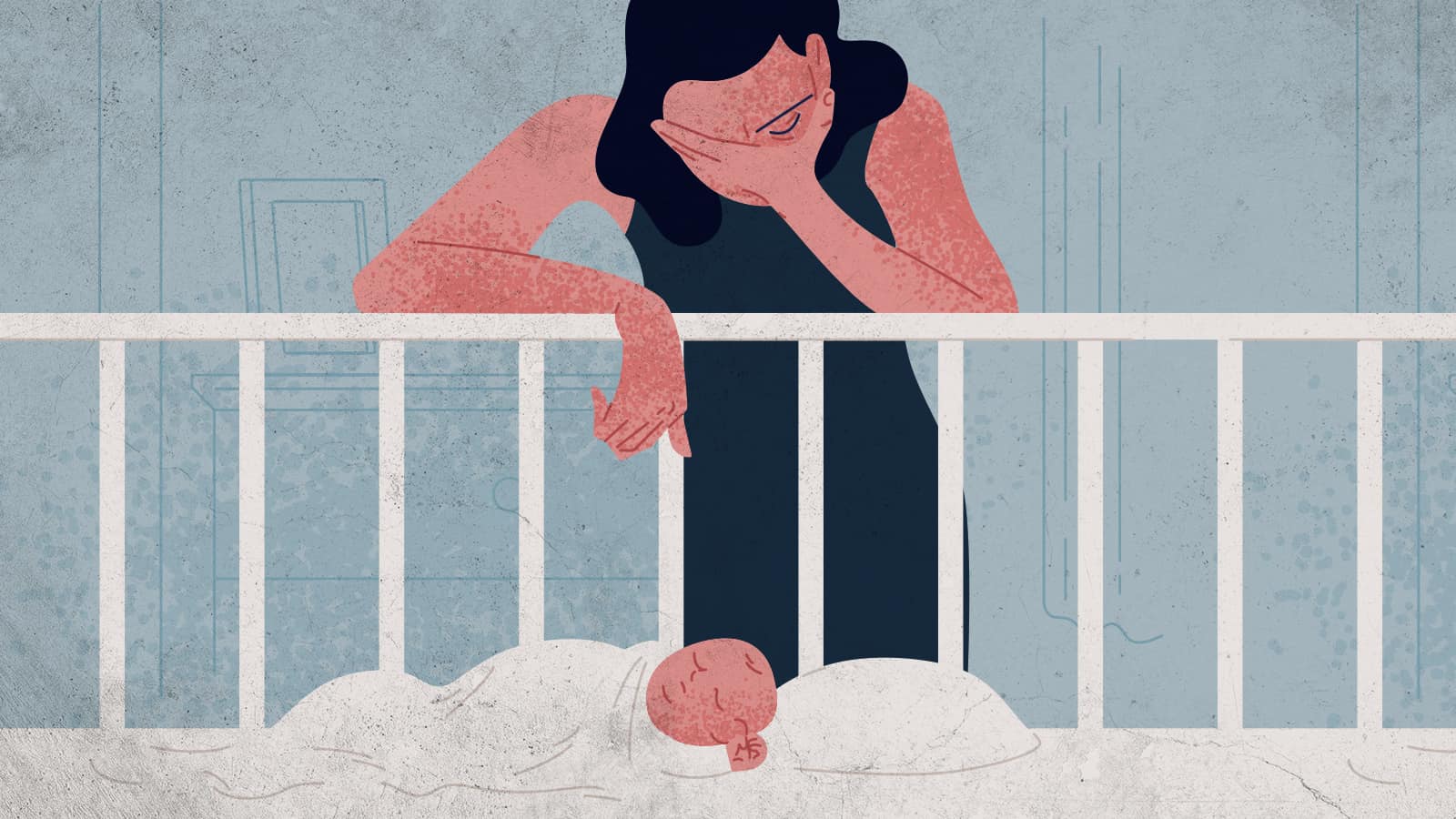A recent study discovered the risk factors associated with postpartum depression (PPD) symptoms. According to a survey of over 1.1 million mothers worldwide, first-time moms, mothers younger than 25, and mothers of twins have a heightened postpartum depression risk.
According to researchers from the University of Virginia School of Medicine, Johns Hopkins University, and Flo Health, women older than forty who give birth to twins have the highest risk.
“The size of this study, in over 1 million new mothers, make the findings highly significant and definitive. Most studies on postpartum depression are small and confined to a small region. This study answers questions about risk factors for postpartum depression from a worldwide sample,” said Jennifer L. Payne, MD, the study’s senior author and director of the Reproductive Psychiatry Research Program at the UVA School of Medicine.
Researchers said it’s essential to understand the risk factors for postpartum depression since it can impact both moms and their children. For instance, the researchers note that women experience depression twice as often as men during their childbearing years. After giving birth, women also have an increased risk of developing major depression.
The researchers added that children of women with postpartum depression have a higher likelihood of experiencing major depression or other mental disorders. Having a mother who experiences postpartum depression can cause developmental problems for children, such as lower IQs and delayed language development.
“There is a growing necessity to identify risk factors that place women at elevated risk, before the onset of affective illness, during this vulnerable time-period so that preventive measures can be instituted,” the researchers write.
The research appears in the Journal of Affective Disorders.
Study Reveals Risk Factors for Postpartum Depression
To gain more insight into the risk factors for postpartum depression, researchers analyzed questionnaires from over 1.1 million new moms. They filled out an “After Childbirth Survey” on the Flo app, allowing women to track their menstrual cycle.
The survey responses revealed that ten percent of 18- to 24-year-olds reported postpartum depression symptoms, the highest among any age group. Only 6.5% of 35- to 39-year-olds experienced postpartum depression.
The percentage of women forty and older who developed PPD increased slightly to 6.9%. Women who had previously had children had the lowest rates of PPD compared with first-time moms.
Women with twins experienced postpartum depression more often (11.3%) than those with a single child (8.3%). The variation between moms of twins and single children with PPD became more evident among forty and older women.
Fifteen percent of mothers with twins in this age group reported symptoms of PPD compared with only 6.6% of mothers of one child. According to researchers, women older than forty with twins have a “markedly high risk” for postpartum depression.
The team didn’t find a significant difference in the rates of PPD between mothers of boys or girls.
“Most women with postpartum depression are not diagnosed or treated. Clinicians caring for new mothers can be aware of factors like age, first pregnancy, and twin pregnancies that put women at a higher risk of developing postpartum depression and screen and intervene early,” Payne said. “Early intervention can prevent the negative outcomes associated with postpartum depression for both mothers and their children.”
Sixteen Key Signs of Postpartum Depression
- Depressed mood or significant fluctuations in mood
- Crying excessively
- Difficulty attaching to your body
- Isolating from loved ones
- Marked increase or decrease in appetite
- Insomnia, or on the other extreme, excessive sleep
- Extreme fatigue
- Lack of interest in activities you once enjoyed
- Becoming uncharacteristically irritable and angry
- Fear of being a bad mother
- Feeling hopeless, worthless or inadequate
- Brain fog and difficulty concentrating
- Restlessness or anxiety
- Panic attacks
- Thoughts of self-harm or harming your baby
- Frequent thoughts of death or suicide
It goes without saying that if you’re experiencing these last two symptoms, please seek help immediately. Thoughts of harming yourself or your child could point to a severe condition called postpartum psychosis. It usually develops in the first week following delivery and can include other symptoms such as confusion, hallucinations, paranoia, and increased energy.
However, even if you’re experiencing the milder symptoms of postpartum depression, it’s essential to treat it quickly. Below, we’ll go over a few remedies for PPD so you can start feeling like yourself again.
Treatment for Postpartum Depression
- Many times, doctors will prescribe antidepressants to alleviate symptoms of PPD. Today, most SSRIs are safe to take while breastfeeding and don’t contaminate the mother’s milk. However, it would help if you talked with your doctor to determine the best medication for postpartum depression, as it varies for each person.
- Some doctors may also suggest therapy as a viable treatment. Coupled with medications and lifestyle changes, many women report feeling better after a few months.
- Lifestyle changes. As with other forms of depression, your symptoms will likely improve with lifestyle changes. Eating fresh, whole foods, exercising, getting adequate sleep, and taking time to destress can help heal postpartum depression. The first few weeks after giving birth may not allow for a regular sleep schedule, which can exacerbate symptoms. However, during this time, make sure to take naps during the day so you can catch up on sleep.
Just remember, you’re not a bad mother for having PPD; it’s simply a condition that requires treatment so that you can enjoy motherhood in all its glory. Millions of women experience postpartum depression, so you’re not alone. Don’t feel ashamed of seeking help because you deserve to feel happy and connected to your baby.
Final Thoughts on Risk Factors and Symptoms of Postpartum Depression
According to the CDC, around 1 in 8 women experience postpartum depression each year. So, if you have PPD, remember that it’s a standard, treatable condition that you don’t have to face alone. The challenges of motherhood, especially if you’re a new mom, can feel overwhelming initially. You’re just getting used to motherhood, and it takes time to adjust.
So, above all else, give yourself grace if you experience PPD, and remember that the painful feelings will fade. After the first few months, you’ll get the hang of parenting, and everything will start falling into place.



















